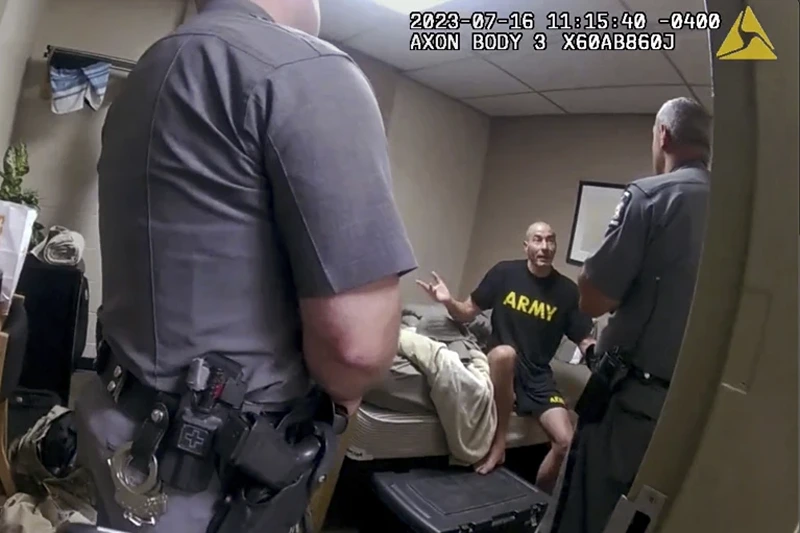
OAN’s Abril Elfi
2:14 PM – Thursday, March 7, 2024
The gunman who carried out the deadliest mass shooting in Maine, Robert Card, reportedly had a history of brain injury.
At the request of the Maine Chief Medical Examiner’s Office, Boston University’s CTE Center conducted a post-mortem examination of Robert Card’s brain. The exam turned up “significant evidence of traumatic brain injuries at the time of the shootings.”
According to a report released on Wednesday and signed by Dr. Ann McKee, director of the lab at Boston University, among the injuries noted by researchers was inflammation, a small blood vessel injury, and damage to the fibers that facilitate communication between areas of the brain.
According to her, there was no proof of chronic traumatic encephalopathy (CTE), a brain disorder that is frequently discovered in athletes and veterans of the armed forces who have experienced repeated head trauma.
“While I cannot say with certainty that these pathological findings underlie Mr. Card’s behavioral changes in the last 10 months of life, based on our previous work, brain injury likely played a role in his symptoms,” McKee said.
The New York Times cited the lab report which revealed “moderately severe” damage and complete absence of white matter in certain areas of the brain. Tissues intended to provide insulation for biological circuits were found in “disorganized clumps.”
Card’s brain reportedly displayed inflammation and scarring throughout the rest of it, which is indicative of prior trauma.
The chief medical examiner of Maine sent the sample of brain tissue to the lab last fall. At the time, a Pentagon spokesman stated that the U.S. Army had implemented various steps to lessen soldiers’ exposure, such as limiting the number of personnel near explosions, and was trying to better understand the link between “blast overpressure” and the brain’s health.
The 40-year-old Army reservist opened fire at a Lewiston bar and bowling alley on October 25th, leaving 18 people dead and 13 injured. After several days of a rigorous search that kept people inside their homes all over the city, authorities discovered Card dead from a self-inflicted gunshot wound.
According to the report, Card taught at a hand grenade training facility and is thought to have been exposed to thousands of blasts. McKee released the results, according to a statement from Card’s family, in part to “raise awareness of traumatic brain injury among military service members” and “encourage more research and support for military service members with traumatic brain injuries.”
“Without hard evidence defining ‘safe’ levels of blast exposure − if there is such a thing − we can’t prevent this outcome, and these families won’t be the last to be left heartbroken,” Kristen Dams-O’Connor, director of the Brain Injury Research Center at Mount Sinai, said. “There is an urgent need to address the question of ‘how much is too much’ when it comes to blast exposure.”
Fellow servicemen of Card stated that he was reportedly claiming to hear voices and that he was possibly stashing guns. They also mentioned that Card had punched another soldier and threatened to shoot up a National Guard facility.
The gunman was admitted to a mental health facility in July 2023 for a two-week stay. However, during the two months prior to the shooting, there were other reports of violence and concerning statements made about him to Army officials and local law enforcement, even after he was freed.
“We’re left to infer that this brain pathology had to contribute to those clinical symptoms during life. It would be a reasonable conclusion that what we saw play out here is related to that (blast) exposure.”
Stay informed! Receive breaking news blasts directly to your inbox for free. Subscribe here. https://www.oann.com/alerts

